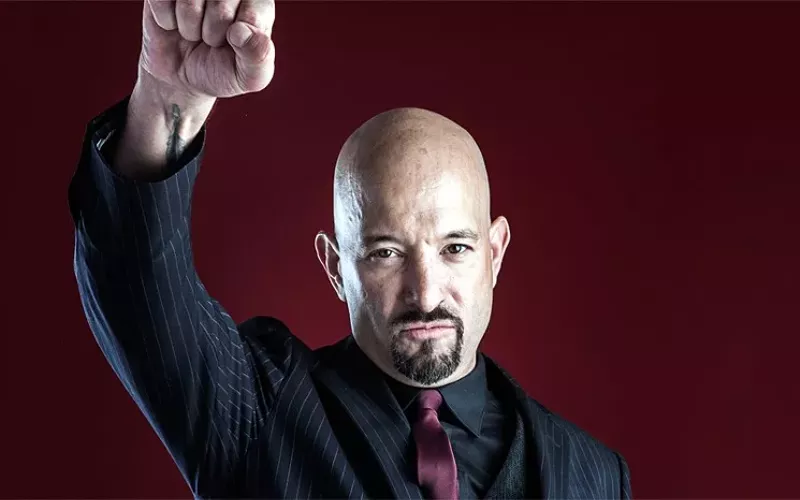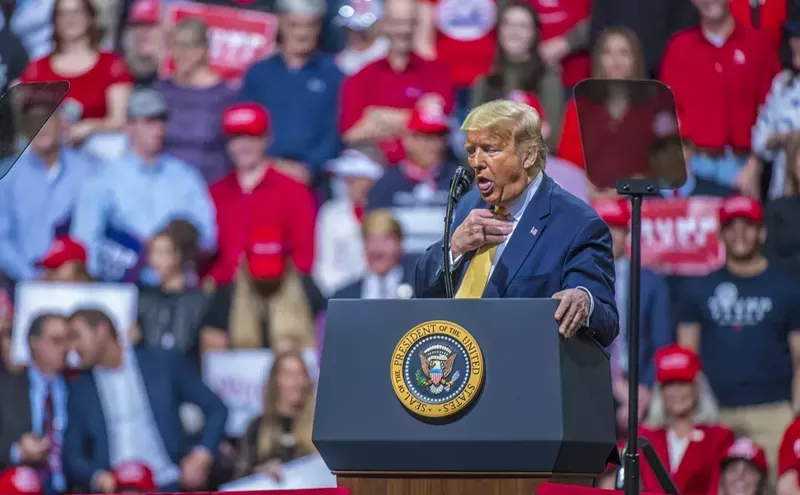On January 20, as supporters and protesters alike gathered inside the National Mall and along a parade route in Washington, D.C., for Donald Trump’s inauguration, a different kind of protest was gathering about ten blocks north, in Logan Circle.
I was on hand, reporting on events around the inauguration for Westword, and witnessed what has become known as the DisruptJ20 march, a roughly thirty-minute-long “black-bloc” demonstration that began at Logan Circle and involved over 200 protesters who obscured their identities with black masks and eyewear, some of whom identified as anarchists or anti-fascists. In a half-hour reign of chaos, some of them destroyed windows at banks and chain restaurants; a few threw objects at police officers. It was heavy.
I later learned that I narrowly avoided being corralled into a police trap where over 200 people were arrested by D.C. police, including journalists. After the arrests, no one was surprised that prosecutors with the federal government (D.C. is a special jurisdiction where the feds are responsible for leveling criminal charges) would go after some of the demonstrators. But few expected that over 200 people would face up to 75 years in prison on felony conspiracy and Riot Act charges.
The attorney representing the first three defendants squaring off against these charges is Denver-based Jason Flores-Williams, about whom I had already written a cover story — “Ready for Action” — before the inauguration in D.C; he’s the same lawyer involved in the homeless class action case against Denver in federal court, which is set to begin in September.
Flores-Williams also faces immense pressure ahead of his clients’ first trial date in the J20 case, November 20, because his defense will set a precedent for how the remaining 200-plus cases will play out. The Denver attorney maintains that his clients are not guilty of any of the property destruction or assaults on police that occurred on Inauguration Day. Still, he says that federal prosecutors are trying to put away his clients for decades in order to sow fear among anyone planning similar acts of dissent in the future.
I recently sat down with Flores-Williams and learned about the latest developments in the J20 cases. (Note: Flores-Williams also recently published an op-ed in Westword about the cases.)
Westword: You mentioned in your Westword op-ed that these charges against the J20 protesters are a product of the DOJ under Jeff Sessions and the Trump administration. How do you figure that it’s being directed from the top like that?
Jason Flores-Williams: Look at the progression of the case. You had this protest in D.C. on Inauguration Day, and instead of prosecuting people based on their actions, they've engaged in this exponential increase of repression by adding a superseding indictment, which still, if you look at that fucking thing, does not name people — including my particular clients — with any direct, causal actions. Then they added the conspiracy charge, which is all about getting into people's associations and expressions. And that exponential increase, including the superseding indictment, could not happen without the DOJ saying, "Go after them. Punish them. Send a message." In other words, that wouldn't happen unless the DOJ got approval from the top.
The Washington Post recently reported that prosecutors are going after defendants’ Facebook accounts and are trying to prevent Facebook from even notifying its users that their records are being subpoenaed. What do you make of that?
When Facebook, which has not exactly been the vanguard of personal liberties and civil rights, feels the need to stand up against the government on behalf of people when alleged property destruction took place, you know that something heavy is going on. This is the government prosecuting people for their sympathies, their gestures, and ultimately their throughts by going after their expressions that were private prior to J20.… This is a front-lines battle [to counter] a DOJ engaging in COINTELPRO — like tactics where they have actually subverted individuals' constitutional rights so much — including the First Amendment right to association and the right to privacy — that Facebook, the Electronic Frontier Foundation, and the ACLU have all had to get involved.
What have the hearings in D.C. been like so far? Are you collaborating with other lawyers on your three clients’ cases?
The government, under the guise of due process, has made a big deal about how everybody should have their own lawyer. But what everyone knows is that by assigning everyone their own lawyer, you create distinctions and disparity between defenses. So you have this courtroom packed with attorneys. And some of them are appointed attorneys whose background is in writing wills under probate court and maybe doing escrow closings on homes. And then you've got some attorneys who are good and have criminal-defense experience but are honestly concerned about representing this case because their corporate clients might look at them and say, "What are you doing representing anti-fascists?" And finally, others do understand the constitutional implications of all of this.
And so the judge goes around — and it's almost like some twisted show-and-tell that doesn't comport with due process at all — and gives everyone about thirty seconds to talk. And if you present something more than thirty seconds, then the judge, in the name of judicial efficiency, talks to you about giving everyone else a chance…. It’s a circus.
How are the defendants dealing with these charges? Surely they must be as surprised as many observers are about the severity of their legal situation.
Some people are rightly stressed out, and it's getting to them. As we get closer to the trial, that stress level is going to rise. But it's a phenomenal credit to these people that they're each facing up to 75 years in prison — exponentially more time than many rapists — and that some have formed support groups like the DC Legal Posse.
The case has naturally given birth to a kind of culture. Some even made music and an album called Kerkhophony because [Assistant U.S. Attorney Jennifer] Kerkhoff is the United States prosecutor who’s calling this case the case of her career. So some defendants made an album essentially shining a light on her and the ways she's decided to proceed.
Why is this case important to you, and why do you think people should closely follow what happens?
Imagine that you come home and have a glass a wine and write something on Facebook about how something needs to happen beyond going to a fucking free-speech zone and being videotaped by seventeen police officers in some civic center. That doesn't do anything. And the government knows that that doesn't do anything, which is why they allow it. And so the second that something rises against keeping normalcy in place right now, it’s outlawed. And what this prosecution ends up being about is constricting and constructing the theater of the allowable. Otherwise you're facing 75 years.

Audio By Carbonatix
[
{
"name": "GPT - Billboard - Slot Inline - Content - Labeled - No Desktop",
"component": "23668565",
"insertPoint": "2",
"requiredCountToDisplay": "2"
},{
"name": "STN Player - Float - Mobile Only ",
"component": "23853568",
"insertPoint": "2",
"requiredCountToDisplay": "2"
},{
"name": "Editor Picks",
"component": "17242653",
"insertPoint": "4",
"requiredCountToDisplay": "1"
},{
"name": "Inline Links",
"component": "18838239",
"insertPoint": "8th",
"startingPoint": 8,
"requiredCountToDisplay": "7",
"maxInsertions": 25
},{
"name": "GPT - 2x Rectangles Desktop, Tower on Mobile - Labeled",
"component": "24956856",
"insertPoint": "8th",
"startingPoint": 8,
"requiredCountToDisplay": "7",
"maxInsertions": 25
},{
"name": "Inline Links",
"component": "18838239",
"insertPoint": "8th",
"startingPoint": 12,
"requiredCountToDisplay": "11",
"maxInsertions": 25
},{
"name": "GPT - Leaderboard to Tower - Slot Auto-select - Labeled",
"component": "17676724",
"insertPoint": "8th",
"startingPoint": 12,
"requiredCountToDisplay": "11",
"maxInsertions": 25
}
]












